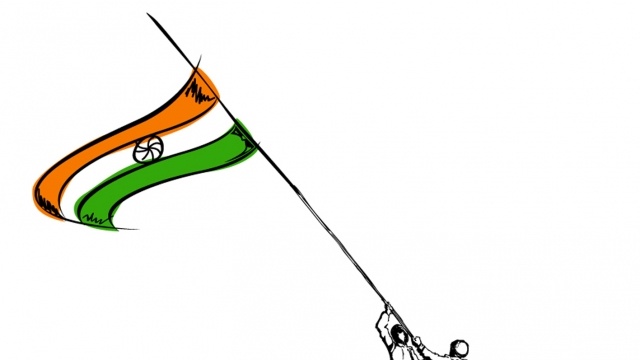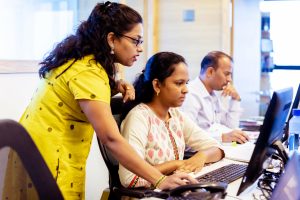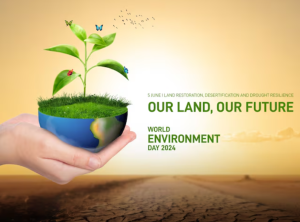The youth brigade – representatives of the 15-25 age group – responds to our query: What would you like to see change in India over the next few years?
In Support of Sports and Spaces
By Adil Kalyanpur, 15
This is the year that I hope sports will be bigger in our country. There are many things India lacks when it comes to sports. Certain changes we make can have a major impact on the health of people as well as create more successful athletes and sportsmen for the international sports stage.
Being a tennis player and training hard over the past ten years, I have had visions that India would be the leading sports community in the entire world. I see great talent and potential in this country but we lack the tools. Among the things we can do is create more open spaces and areas reserved only for kids and adolescents such that they can practice their desired sport without being thrown out by older adults and, in some cases, bullies! I hope that our country realizes that sports can prevent many health problems and that just a few public spaces can make millions happy and healthy.
Concrete spaces are the next big obstacle. The government should make it mandatory to have some outdoor playing spaces such as a basketball or volleyball court or cycling/walking tracts in any development. This will allow kids living there to get some fresh air as well as some sunlight and much needed Vitamin D. Scientific theories have proven that daily exercise improves concentration skills, thus helping students with their schoolwork. In my opinion, it should be made mandatory for schools to allow a minimum of 45 minutes of sports and play time per day. Our country has become a ‘tuition’ obsessed country. It is my hope and my aim to make it more balanced for children. Yes, studies and academics are important but so are sports and play time. I hope we produce more and better coaches, make parents and teachers aware of the benefits of sport, free up more lung space in the cities, and create more sports heroes who can inspire more people – both children and adults – to make this a way of life.
Adil was India’s number one tennis player in the under 12 age group and Asia’s number two player in the under 14 age group. He has represented India in the World Junior Cup and the Road to Wimbledon series.
When Will We Learn?
By Pooja Sathyanarayanan, 21
India is so many things depending on whom you ask: developing, ancient, young, advancing, diverse, burgeoning, free and collectivistic. We’re projected to comprise of a younger population, one that, by 2025, might overtake China in size. Yet, unless we “grow up” in every other way, we’re setting ourselves up for a greater tragedy. Sure, we’ll have the human capital, but it’s one that could offset greater scandal, chaos and unemployment rates than the headlines of 2014 unless the nature of this population is balanced, skilled and sensitised.
It might appear that education alone is the solution to the flip side of this equation. Or is it?
The people who are quick to attribute rape to “lack of modest dressing in women” and prevention of rape to “women not going out at night” aren’t all without degrees. They are happy to parrot tired clichés like “boys will be boys” and “she asked for it”. Textbook knowledge does nothing to stamp out readily available stereotypes and roles.
In a related scenario, Haryana has the lowest sex ratio, mainly because of high dowry rates. Why is the girl child still a taboo here? Is it because they have a low literacy rate compared to the rest of India? Unfortunately, that’s woefully incorrect. Haryana’s literacy rate has, in fact, increased over the years. The kind of education that fulfills the criteria of literacy, however, has played absolutely no role in uprooting this practice. What do we need in order to change this? Awareness? Development?
In Haryana, awareness (taken in the most nonspecific sense) has only led to abortions. Development has led to an abundance of ultrasound centers. The girl child is not thought to be worth the costs she will incur in the years to come.
That brings us to India’s greatest need: education that extends beyond our literacy rate requirements; the kind that includes sensitization to difference.
While this hasn’t completely taken shape, it isn’t out of our reach either. It has already started; initiatives such as the Respect Women website (www.respectwomen.co.in), and workshops by Manas Foundation and Delhi’s Transport Department for rickshaw drivers are doing much towards instilling gender sensitization and a sense of responsibility.
It could be better; the current education system allows few below the poverty line to break the cycle of poverty. Most of the time, the returns are minimal, and they remain in the same socio-economic bracket for generations to come.
Unfortunately, for even the most singularly focused plans, real impact may include the time it will take for competing and firmly entrenched social norms to erode. Give it time, and the image of true progress –that is more than just a statistic- may not look so blurry.
Pooja is a second year Masters student of Applied Psychology at Pondicherry University.
New Year Cheer
By Alisha Kalyanpur, 17
It’s that time of the year for reflection. And I don’t mean it literally, although many use this opportunity to stare critically at their reflections in the mirror and think yet again, “This is the year I will get fit/lose weight/get in shape/all of the above.” Hence it is heart-warming to see numerous people of all ages, ethnicities and backgrounds walking and running in Delhi’s Deer Park even on cold, wintry evenings, aiming to stay away from ‘none of the above’. On top of this, the fact that Mr. Modi has created an International Yoga Day shows that things are looking up for healthy lifestyles. As an aspiring doctor, I applaud the spread of awareness regarding the benefits of physical fitness.
Unfortunately, climate change and pollution threaten to drag our health two steps back. We need to be moving away from our dependence on non-renewable fossil fuels and towards alternative resources such as solar power. I am fortunate to live in a house that gets its power from the sun so that we are almost never troubled by power cuts and shortages. And at the risk of sounding like a solar cell advertisement, I will say it really is a worthwhile investment, just like electric cars and rainwater harvesting. If everyone contributes their two cents, the enormous account balance can avert the environmental issue.
I sincerely hope 2015 and beyond see the global levels of happiness rising. Personally, dancing makes me happy and so I plan to dance more in the coming year. I believe that happiness is right up there with the constitutional fundamental rights of citizens. The domino effect of joy can be initiated by a sole act of kindness. I have experienced the joy of giving, when I was a part of a Bharatanatyam performance to raise money for People4People, an organisation that sets up playgrounds in underprivileged schools in India, and I know that it is a feeling like no other. In fact, on the day of the show, a member of the audience said to me: “Smile at the world and it will smile back.” I took this to heart and I am happy to say that the seventeen muscles of mine that are involved in smiling are well toned.
The New Year is a clean slate; let’s join forces to make it a masterpiece we can all be proud of.
Here’s to all of the above!
Alisha is a student and Bharatanatyam dancer based in Bangalore. She was among the top two in the country in her ICSE board exams and is now on the path to medical school.
Educating People About Health & Sanitation
By Sujatha Reddy, 23
As communicated to Viewpoint
I grew up in a small village near Bangalore called Bagyapalli. My parents, neither of whom attended school, owned some land there and my sisters and I helped them in the field – tilling, sowing and tending – as soon as we were old enough to do so. I moved to Bangalore when I was seventeen years old and enrolled in a college correspondence course. My mother supported us with income she made from cleaning homes. As soon as I could, I started looking for a job so that I could contribute to the family income. Today, I manage a rental housing unit for women and things are looking up – for me and for the rest of the family.
I feel that because of where I come from and where I now live, there are certain things that are very important to me. Health and medical care represent one important aspect. Here, in the city, we have access to decent medical care and the ability to visit a doctor to treat even minor ailments. Unfortunately, the reality in our villages is very different. For starters, good medical care is not easily available in most villages. Secondly, people who live there are not educated about health issues and their treatment. I hope that situation will change soon with more medical facilities opening up in rural areas and people getting information to help manage their health better.
The second aspect that is personally very important to me is sanitation and creating more awareness about this among children and others. We need more public toilets for sure but we also need to educate people about why they should not litter and pollute their surroundings. Within the rental complex that I run, I have made sure that there is a large garbage can for residents to empty their trash in. The city municipality has to make sure that that there are dustbins all over town for people to use. If we have one located every 500 meters, our cities will be cleaner and litter-free. I feel strongly about this issue as do many of my friends. Most of them will carry a chocolate wrapper in their pockets until they can find a dustbin.
I hope and believe that the Swachh Bharat campaign will transform India.
Sujatha is the manager of a Paying Guest (PG) housing complex in Bangalore.




